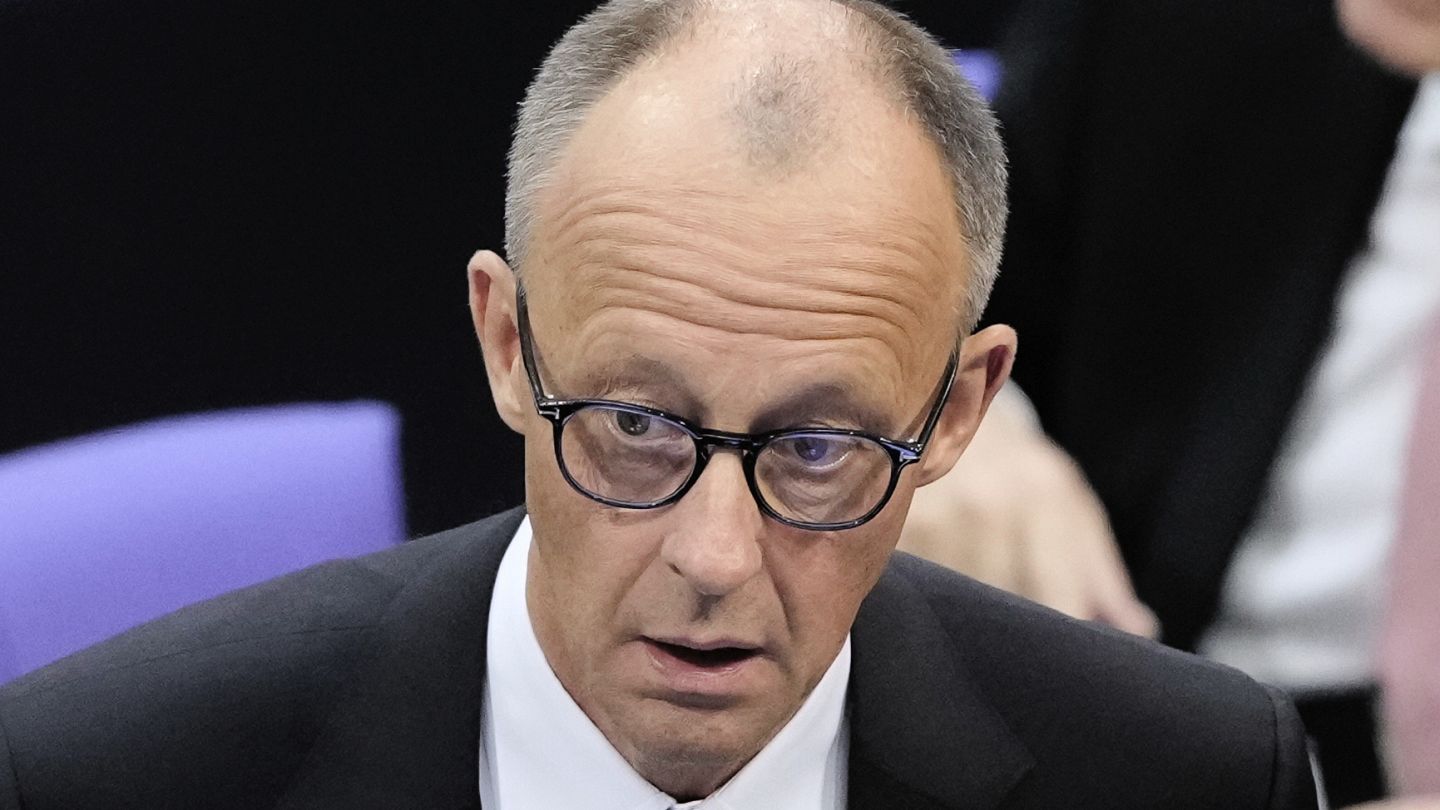Germany's chancellor hopeful Merz fails to secure majority in first round of Bundestag vote
The CDU party leader lost the first round of voting to become Germany's chancellor on Tuesday, falling short by six votes.
Friedrich Merz narrowly lost the first round of voting Tuesday to become Germany's next chancellor, in a surprise setback for the CDU party leader. Merz, who's been the favourite to become chancellor since his party won the federal election in February, secured 310 votes — six votes less than what was needed to secure a majority in the Bundestag. Merz losing the vote on Tuesday marks the first time in the federal republic's history that an incoming chancellor has failed to secure the majority of votes after winning an election and securing a successful coalition agreement. It is also a personal disappointment for Merz, who made it clear that he expected to easily secure a majority in parliament, given that his CDU and its coalition partners, the centre-left SPD, have 328 seats in parliament combined, which should be considerably more than the 316 needed. The scheduled parliamentary session has been adjourned so political groups can consult on the next steps. What's next? According to the Bundestag's website, a second round of voting will be held if a candidate fails to secure an absolute majority in the first round. A repeat vote can be held anytime within two weeks. Crucially, other candidates are also allowed to run for chancellor, but they would need an absolute majority, so at least 316 votes to be elected. If no one receives a majority in the second round, a simple majority is needed for a third round. Alternatively, Germany's president can dissolve the Bundestag within seven days and call for a new election. Media reports after the result indicated that there wouldn't be a second vote today, which, if Merz lost again, would be devastating for his credibility.There are also deadlines for the next round. To call a repeat vote sooner, all political parties must agree to shorten the deadline.According to public broadcaster ARD, Bundestag President Julia Klöckner invited the Greens and the far-right Alternative for Germany (AfD) to a new round of voting on Wednesday. If all parties do not agree to shorten the deadline, the earliest possible date for a new vote would be Friday. Extinguished expectationsAs new chancellor, Merz was set to travel to Paris and Warsaw on Wednesday, preside over World War II anniversary celebrations on Thursday, and head to Brussels on Friday. However, the shock setback has put his travel plans in flux. It's not immediately clear who in the secret ballot did not support his bid to the chancellery, although it is clear some dissenters come from within the CDU or coalition partners, the SPD. SPD leader Lars Klingbeil told broadcaster Welt after the vote that there were no indications of apostates within his party's ranks, which, if true, would mean that Merz faced opposition from within the CDU itself. The AfD, the second-largest party in the Bundestag, called for Merz's to step down and for new elections to take place immediately. The party is reportedly in favour of calling a repeat of the chancellor vote as early as Wednesday.


